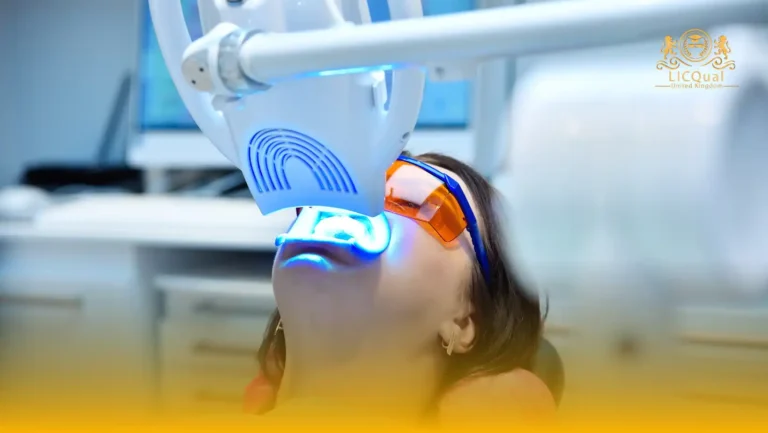The LICQual Level 3 Diploma in Hospital Management is a comprehensive qualification designed for healthcare professionals seeking to advance their leadership and management capabilities within hospital and healthcare facility settings. This programme equips learners with the knowledge, practical skills, and strategic insight required to manage hospital operations effectively, optimise resource allocation, and ensure high standards of patient care.
This qualification is not intended for fresh candidates. It is specifically aimed at experienced professionals who wish to enhance their career prospects, broaden their knowledge, and strengthen their Continuing Professional Development (CPD). Learners will explore key areas including hospital administration, financial management, human resources, patient safety, quality assurance, and strategic planning, with a strong emphasis on applying theoretical knowledge to real-world hospital management scenarios.
Centres delivering this qualification are required to ensure that learners are supported by competent and qualified staff with extensive experience in hospital management and healthcare leadership. Centres must also provide comprehensive learning materials, case studies, practical tools, and a supportive environment to facilitate effective learning and successful outcomes.
Upon completion, learners will be prepared to lead hospital operations efficiently, implement effective management strategies, and contribute to organizational excellence. The LICQual Level 3 Diploma in Hospital Management equips learners with essential practical, analytical, and strategic skills, enabling them to take on senior administrative and managerial roles within healthcare institutions, while significantly enhancing their professional credibility and career progression opportunities.
Course Overview
Qualification Title
LICQual Level 3 Diploma in Hospital Management
Total Units
6
Total Credits
60
GLH
240
Qualification #
LICQ2200734
Qualification Specification
To enroll in the LICQual Level 3 Diploma in Hospital Management, applicants must meet the following criteria:
|
Qualification# |
Unit Title |
Credits |
GLH |
|---|---|---|---|
|
LICQ2200734-1 |
Principles of Hospital Management |
10 |
40 |
|
LICQ2200734-2 |
Healthcare Finance and Resource Management |
10 |
40 |
|
LICQ2200734-3 |
Human Resource Management in Hospitals |
10 |
40 |
|
LICQ2200734-4 |
Quality Assurance and Risk Management |
10 |
40 |
|
LICQ2200734-5 |
Patient Care and Service Excellence |
10 |
40 |
|
LICQ2200734-6 |
Applied Hospital Management Projects |
10 |
40 |
By the end of this course, learners will be able to:
Unit 1: Principles of Hospital Management
By the end of this unit, learners will be able to:
- Explain the core principles and concepts of hospital management.
- Analyse hospital organisational structures, governance, and operational processes.
- Evaluate ethical, legal, and regulatory requirements in hospital administration.
- Apply strategic planning and decision-making principles to healthcare operations.
Unit 2: Healthcare Finance and Resource Management
By the end of this unit, learners will be able to:
- Develop budgets and financial plans to support hospital operations.
- Monitor and control costs to optimise resource allocation and efficiency.
- Apply financial policies, procedures, and reporting standards effectively.
- Analyse financial performance data to inform managerial decisions.
Unit 3: Human Resource Management in Hospitals
By the end of this unit, learners will be able to:
- Plan and manage hospital workforce resources effectively.
- Apply recruitment, onboarding, and staff development processes.
- Monitor and evaluate staff performance using appraisal systems.
- Promote a safe, productive, and compliant working environment.
Unit 4: Quality Assurance and Risk Management
By the end of this unit, learners will be able to:
- Implement quality assurance systems within hospital operations.
- Identify, assess, and mitigate operational and clinical risks.
- Monitor compliance with healthcare standards, policies, and procedures.
- Develop strategies for continuous improvement in hospital management.
Unit 5: Patient Care and Service Excellence
By the end of this unit, learners will be able to:
- Apply principles of patient-centred care and service delivery.
- Analyse and improve patient experience within hospital operations.
- Monitor and evaluate patient safety, satisfaction, and outcomes.
- Implement best practices to enhance healthcare service quality.
Unit 6: Applied Hospital Management Projects
By the end of this unit, learners will be able to:
- Analyse real-world hospital management challenges using case studies.
- Apply hospital management principles to practical operational scenarios.
- Develop project plans, proposals, and improvement strategies.
- Evaluate project outcomes and recommend operational enhancements.
This course is suitable for:
- Hospital administrators and operational managers seeking to improve management efficiency and service delivery.
- Department heads and supervisors responsible for coordinating hospital operations and staff.
- Healthcare quality assurance and compliance professionals aiming to implement effective management and risk strategies.
- Human resources and finance officers in hospitals seeking to optimise workforce and resource management.
- Healthcare professionals committed to CPD who wish to develop strategic, analytical, and operational management skills.
- Allied health professionals and clinicians interested in understanding hospital management principles to enhance service delivery.
To deliver the LICQual Level 3 Diploma in Hospital Management, centres must meet specific standards to ensure high-quality training, learner success, and compliance with international educational standards. Key requirements include:
- Qualified and Competent Staff – Trainers, assessors, and internal quality assurers must hold relevant qualifications and professional experience in hospital management, healthcare leadership, and operational administration.
- Access to Learning Resources – Centres must provide learners with up-to-date study materials, case studies, practical tools, and digital resources to support effective learning and skill development.
- Appropriate Facilities – Training environments, whether physical or online, should include secure IT systems, multimedia equipment, and collaborative spaces for workshops, seminars, and project-based learning.
- Assessment and Quality Assurance Systems – Centres must implement robust assessment procedures, internal verification, and quality assurance processes to ensure consistent and credible learner outcomes.
- Learner Support Services – Academic guidance, technical support, and career development resources should be available to support learners throughout the qualification.
- Compliance and Data Security – Centres must follow best practices in information management, data protection, and adherence to relevant healthcare regulations when handling learner information.
- Commitment to CPD and Continuous Improvement – Centres should foster a professional learning environment that encourages continuous improvement, staff development, and learner progression.
By meeting these requirements, centres provide an environment that enables learners to develop strategic, operational, and analytical skills, preparing them to lead hospital operations, improve patient care, and contribute to healthcare organisational excellence.
Assessment and Verification
All units within this qualification are subject to internal assessment by the approved centre and external verification by LICQual. The qualification follows a criterion-referenced assessment approach, ensuring that learners meet all specified learning outcomes.
To achieve a ‘Pass’ in any unit, learners must provide valid, sufficient, and authentic evidence demonstrating their attainment of all learning outcomes and compliance with the prescribed assessment criteria. The Assessor is responsible for evaluating the evidence and determining whether the learner has successfully met the required standards.
Assessors must maintain a clear and comprehensive audit trail, documenting the basis for their assessment decisions to ensure transparency, consistency, and compliance with quality assurance requirements.







